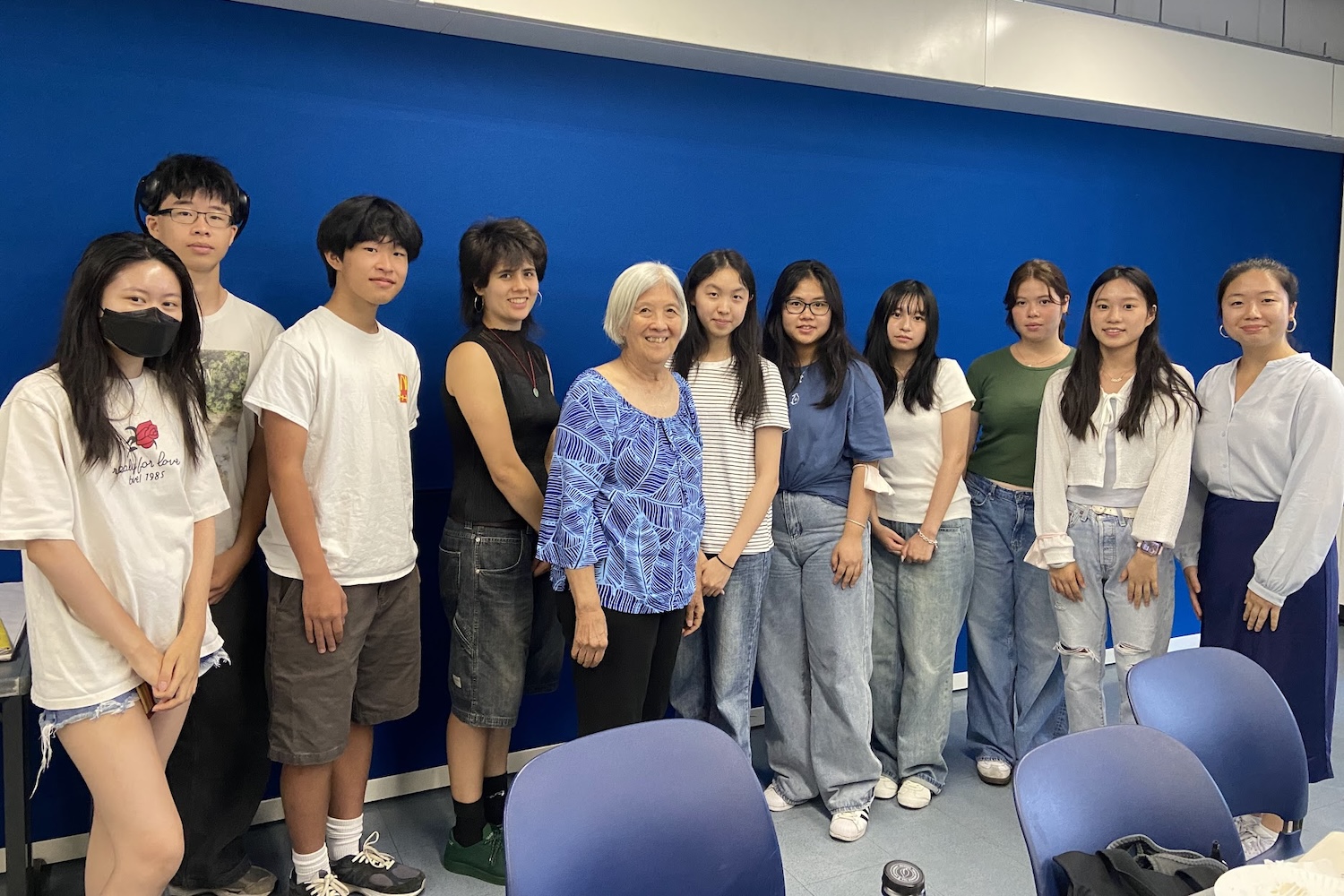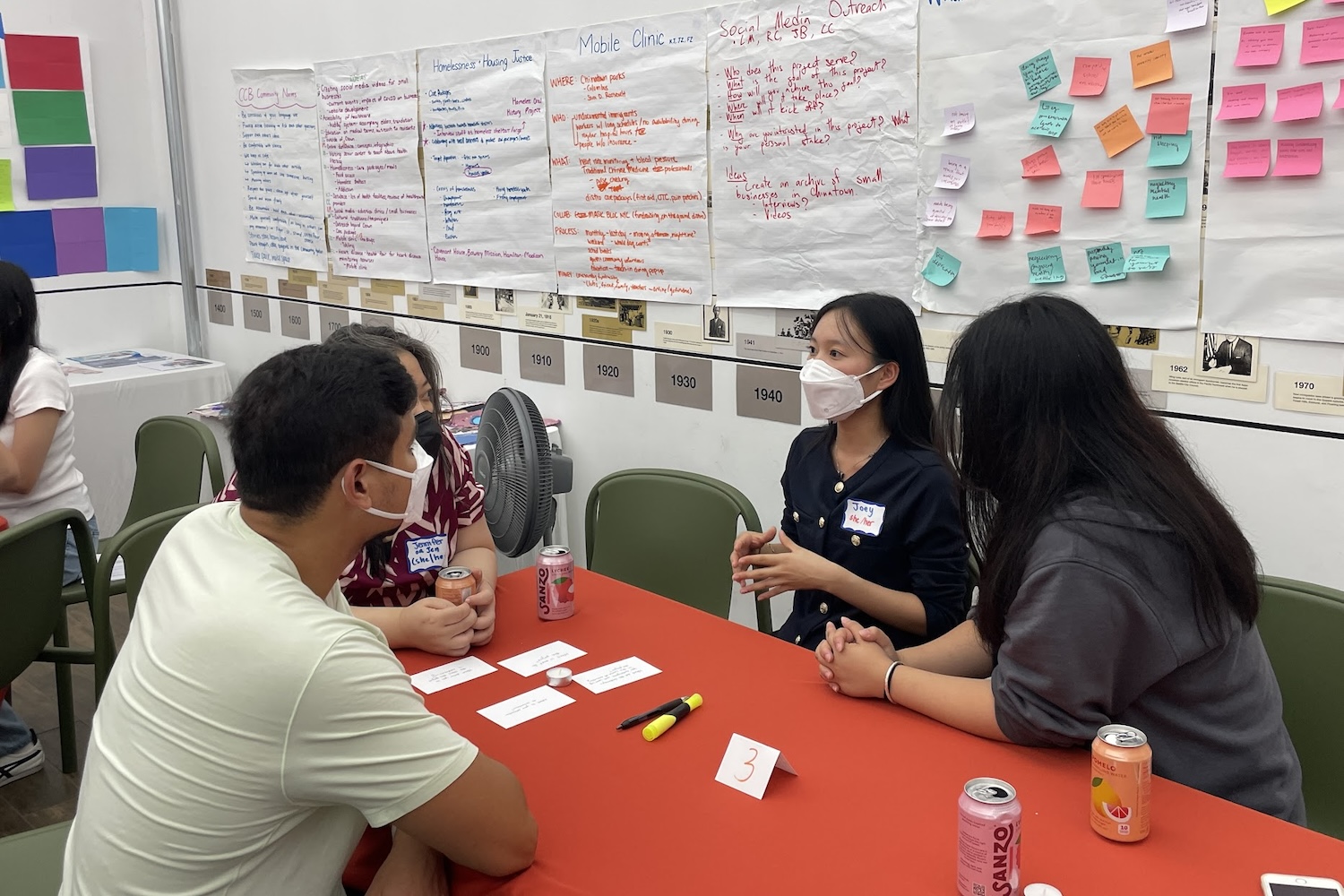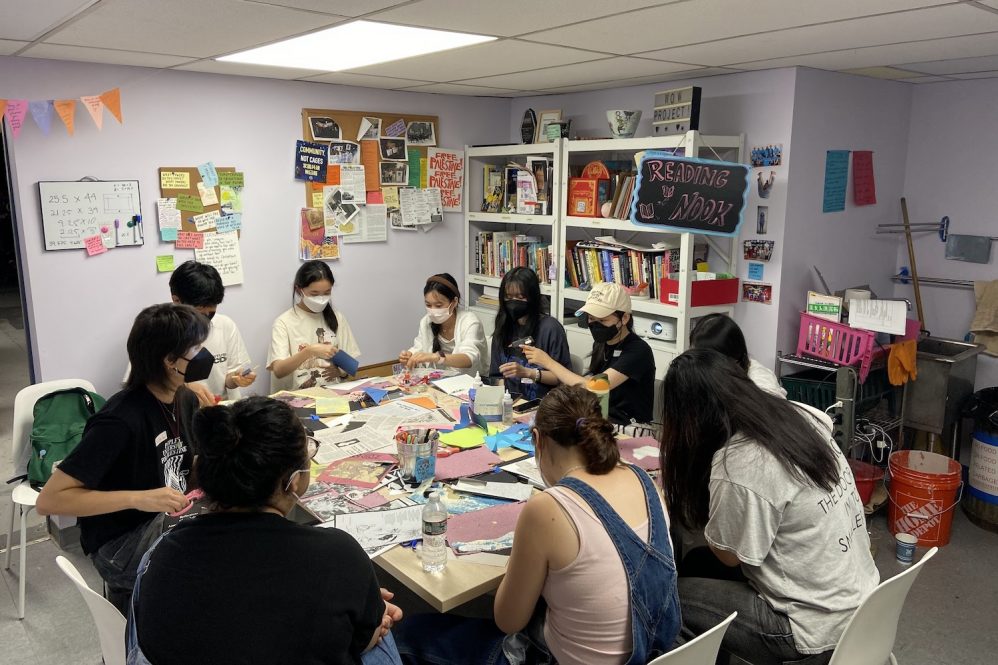Inspired by her grandmother’s and aunt’s stories about working in garment shops in Manhattan’s Chinatown, Karen Lau ’25 (CLAS), an economics, history, and individualized Asian American studies major, spent the summer combing the archives at NYU’s Tamiment Library and interviewing women who were central to the largest strike in Chinatown’s history.
Then, eager to help the community’s youth understand the importance of this history, she partnered with a local nonprofit to mentor high school students, helping them create their own social change projects.
“I thought this was a perfect opportunity because I would be able to impart the knowledge and the research that I’ve been collecting to these youth and teach them about local public history, which they might not be familiar with,” Lau says.
Looking at history through different lenses
Lau says Assistant Professor of History Hana Maruyama encouraged her to do research within a community to which she had a deep personal connection.
So, for her University Scholar project, she chose the 1982 International Ladies’ Garment Workers’ Union (ILGWU) strike in Manhattan, where 20,000 Chinese immigrant women went on strike, demanding their employers sign union contracts for higher wages and safer working conditions. She was not only curious about the long-term economic impact of the strike but also contemporary justice issues such as how rapid gentrification is reshaping Chinatown. Lau thought it was important that this history be taught to future generations.
“I feel a personal responsibility to record this history and make sure it’s remembered,” Lau said.
Lau began by looking through archives of maps, notes, and memos outlining the union’s strategy for the strike; speeches delivered by union leaders; photographs; newspaper articles; personal journals; interviews; and union newsletters.
Katie Quan, a former vice president of the ILGWU and its successor, UNITE, connected Lau to May Ying Chen and Alice Ip, women whose leadership of the union following the 1982 strike expanded its work on education, immigration, and social welfare services for workers and their families.
Lau spoke to these leaders about the impact working in the garment shops and leading a successful strike had on their lives.

For instance, while Lau came across Chen’s name frequently in the archives, she rarely read anything about the impact that Chen’s children and her partner, Rocky Chin, a longtime Chinatown activist, had on her ability to pursue her career successfully. Asking those personal questions allowed Lau to gain a better sense of social dynamics within the labor movement and the impact it had on individual families within Chinatown.
“Having these connections and learning about their personal lives informed my conception of their lives as working mothers and labor union leaders,” she says. “I was also able to learn how strategic they were in organizing the strike.”
She learned that for many women, joining the union provided their families with health insurance and childcare for the first time. The success of the strike empowered women to become the breadwinner of their families, outearning their husbands and therefore gaining more autonomy in their families’ economic decisions.
“Recording the oral histories now is so important because as members of the ILGWU age, their stories are being lost, [since] researchers aren’t finding them [or documenting] their stories,” Lau says. “Unfortunately, many have passed away so it’s even more crucial that we’re recording these stories now.”
She also learned from Quan the tactics she used to make the strike so successful, including broadcasting announcements on the radio and publishing articles in the Cantonese newspaper to inform workers of the strike. Those tactics would inspire future successful labor movements, Lau says.

Using research to guide the next generation in Chinatown
For Lau, researching the stories of these women wasn’t enough; she wanted to connect the past to the present and the future. At the suggestion of Department Head of Social and Critical Inquiry Jason Chang, she began working with Chinatown Youth Initiatives (CYI), a local nonprofit that empowers older youth to mentor high school students.
With support from the BOLD Women’s Leadership Network, Lau worked on a team to develop a curriculum for the inaugural Chinatown Community Builders program.
For eight weeks, Lau and colleagues on the program team worked with eight high school students every Saturday and taught them about local labor history, mutual aid, and cultural organizing.
They took the students on field trips, including one to the Tenement Museum, which explores NYC immigration history. There, the students witnessed firsthand what a garment factory station looked like, listened to the oral histories of retired garment workers and their children, and viewed union memorabilia and family photographs.
As part of this mentorship, Lau also introduced the students to local organizations addressing issues affecting Chinatown. Students heard from Chen; a creator of the Chinatown Records Workshop; a youth organizer at the Chinatown Tenants Union; and leaders of the W.O.W. Project, located at Wing on Wo, the oldest continuously run family-owned store in Chinatown.
Finally, the team worked with the students to develop leadership skills, identify community needs, and pitch and refine projects to meet those community needs.
The students will execute their projects this school year with seed funding from CYI’s partners.

One group is creating an archive of small businesses called the “Heartbeat of Chinatown.” These students are working to produce promotional social media videos for family-owned restaurants in Chinatown’s lesser-known neighborhoods to expand their customer bases. Another group is organizing a healthcare fair called the Health and Hope Initiative to distribute kits with medical supplies and provide free blood pressure screenings to the elderly, undocumented immigrants, and unhoused populations in Chinatown.
With funding from her IDEA Grant and guidance from her University Scholar committee, chaired by Associate Professor of History Fiona Vernal, Lau is creating a digital exhibit with her oral histories, archival research, and analysis of wage and employment data. With support from Professor of Economics Delia Furtado, she plans to estimate the strike’s causal effect on workers’ labor market outcomes. She is also working with Professor of Political Science and Human Rights Shareen Hertel to connect the strike to broader trends in globalized garment production, the global supply chain, and deindustrialization.
Lau hopes educators will use her research to teach students about Asian American labor history under the new Connecticut K-12 public school requirement to offer Asian American and Pacific Islander studies.
“Being embedded in this [intergenerational] community of youth and elders has taught me about the impact that I want to create in this community and how I want to lead as a future scholar-researcher,” Lau says.



